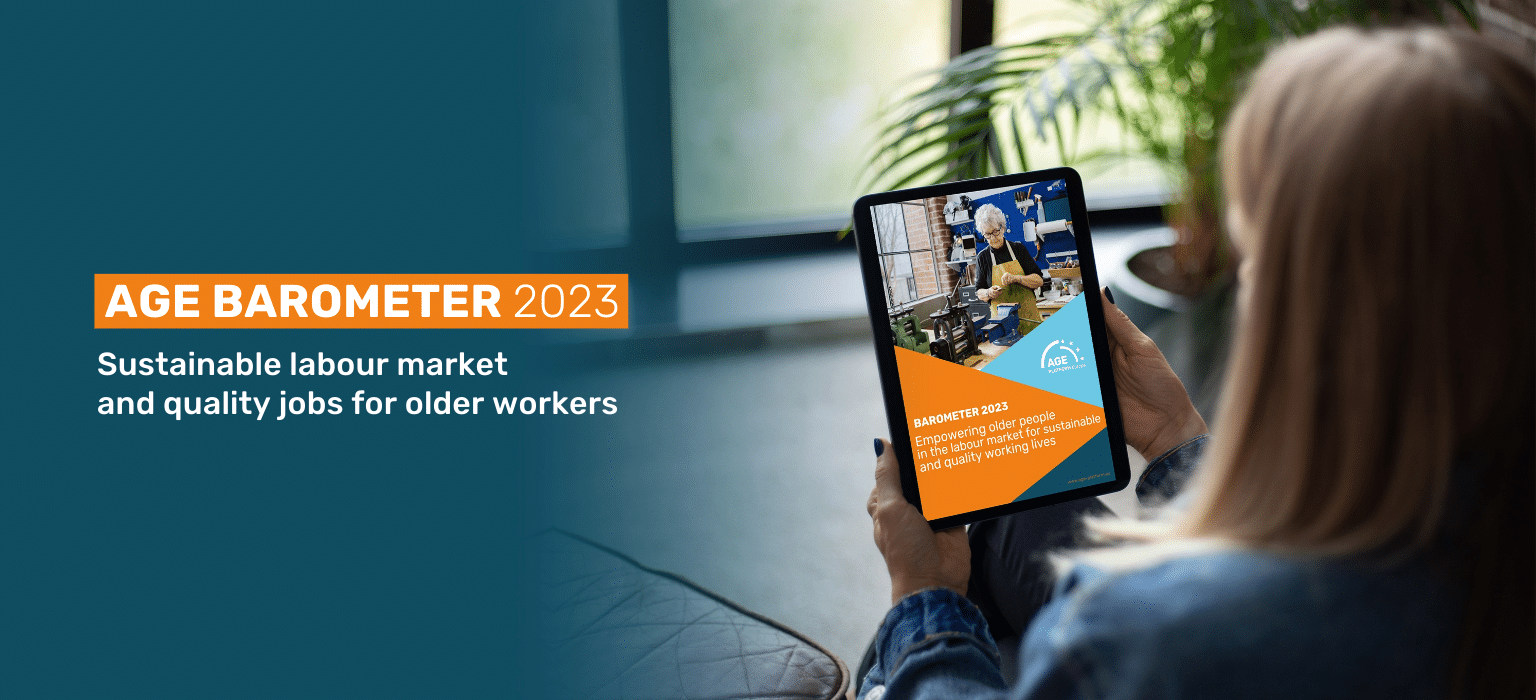Italy
Information provided by Associazione Lavoro Over 40, Associazione nazionale pensionati (ANP) della CIA-Agricoltori Italiani and Associazione 50 & Più and desk research

Support in the labour market
In Italy, the employment rate of people between 50 and 64 years old if of 61.5 %, which is below the EU average of 68.8%. Ageing in the labour market is not particularly targeted by Italian employment policies. Large companies offer career and orientation reviews as well as facilitated retraining processes, but this remains at the discretion of the company and is not made mandatory or even suggested at national level.
With one of the highest long-term unemployment rates (65.1%) for people between 50 and 64 in the EU, Italy has adopted a general approach for the employability of the unemployed without focusing much on older workers. Some measures such as the creation of a National Agency for Active Labour Policies (ANPAL) indirectly support that goal as its role is to promote the right to work, to ensure training and professional growth of people and to coordinate active employment policies among regional job centres. Others specifically target older workers, with the aim to reverse the current long-term unemployment rates for people over 50, such as the reduction of employers’ contributions with extensions for companies that support employment creation for women and those aged 55 years and over.
In the same general perspective, Italy’s Recovery and Resilience Plan (RRP), put in place by the European Commission to financially support the implementation of national reforms and investments in line with EU priorities, is expected to create 240 000 jobs by 2026. Through its mission called “inclusion and cohesion”, the RRP should facilitate labour market participation and foster social inclusion. It plans to strengthen workers employability, to better support people in vulnerable situations.
Strengthening Employment Centres to ensure effective services for unemployed people is one of the major investments of the Italian RRP. It will be coupled with a national programme to ensure workers employability, the Workers’ Employability Guarantee (GOL), and a National Strategic Plan for the upskilling and reskilling of the adult population for a more effective service at local level with innovative and individual-centred methods. The GOL programme is mainly based on networking of different labour market actors to address unemployment. Among the beneficiaries of this project, it is expected that at least 75% will be women, long-term unemployed, disabled people, young people under 30 and workers over 55, with pathways including re-employment, upskilling, reskilling and collective outplacement, all designed to be as personalised as possible.
Support to women in the labour market, including through women entrepreneurship, is also part of the Italian RRP. This support aims to reduce the gender pay gap, through a set of measure, such as the creation of a national system of gender equality certification. It requires from employers to increase opportunities for women, to ensure equal pay for equal work, to implement gender diversity policies and to develop a better transparency in companies’ processes.
The employment reforms of 2014 have abolished the right to work beyond the retirement age in Italy for civil servants who have to retire as soon as they reach the mandatory retirement age (67), while employees in the private sector can continue working until 70 years old. This represents age discrimination in the labour market.
Age discrimination in employment
The equality principle is included in Article 3 of the Italian Constitution and prohibits all forms of discrimination, including age-based discrimination. The Legislative Decree 216/2003 introduced further protections against discrimination in employment, specifying the direct and indirect discrimination. This decree is the implementation of the EU directive 78/2000.
AGE member ATDAL Over 40, short for “Associazione nazionale per la tutela dei diritti dei lavoratori over 40” is an association composed of people who have been forced to leave their jobs as a consequence of dismissals or individual resignations and were not yet entitled to receive a pension from the State welfare system although in some cases certain workers were very close to qualifying for those pensions. One of their services is to support people who have been victims of age discrimination. In cooperation with UNAR, the Italian public equality body, ATDAL Over 40 provides guidelines on how to challenge age discrimination in recruitment processes and how to report it for support on a webpage . Thanks to the intervention of ATDAL Over 40, several advertisements containing illegal age limits have already been removed or amended. Some are available for consultation on their website.
Workplaces for all ages
The main legislation concerning health and safety at work in Italy is the Testo unico sulla Salute e Sicurezza sul Lavoro. It regulates health and safety competences between the Italian State and the Italian regions. Legislation is controlled by the Ministry of Labour and Social Policies and all information concerning new programmes or the evaluation of activities is shared between the bodies concerned through the National Information System for Prevention at Workplaces.
INAIL, the National Institute for Insurance against Accidents at Work, has a research centre which carries out technical-scientific activities. Its data confirm an increase in work-related accidents and illnesses.
Smart Working in Italy
In 2017, the Italian legal system adopted a regulatory framework on smart working. Employees from a company adopting the smart working approach could not only work remotely, or telework, but also be flexible in their working hours. In other words, smart working allows employees to perform her/his work duties from anywhere and at any time. This approach could notably ease the work of workers with low mobility or informal carers for instance, providing them more flexibility to balance their work and the care they provide to their relative in need.
The law still ensures health and safety for the employee: “The employer guarantees the health and safety of the worker, who performs the service in agile working mode, and to this end delivers to the worker and the workers’ safety representative, at least annually, a written information, in which the general risks and the specific risks related to the particular mode of execution of the employment relationship are identified” and that “The worker is required to cooperate in the implementation of the prevention measures prepared by the employer to face the risks associated with the execution of the service outside the company premises”.
The Observatory of the Milan Polytechnic defines it as “a new managerial philosophy based on giving people back flexibility and autonomy in the choice of spaces, times and tools to be used in exchange for greater responsibility for results”.
Although it has only been adopted by a few multinationals operating in Italy following the 2017 legislation, it was a first step towards a better work-life balance. As of March 2020, the COVID-19 pandemic reinforced the value of this legislative framework and of smart work. In particular, the government and trade unions adopted a shared protocol for the regulation of measures to control and contain the spread of the virus in the workplace and called on employers to maximise the use of smart working for all activities that could be carried out by the home or remote worker.
This country assessment is part of the 2023 edition of AGE Barometer dedicated to employment, which you can download below. Find out more online here.
COUNTRY ANALYSIS
Contact

Sarah Loriato
Policy Officer on Employment and European Parliament Liaison
Sarah is in charge of AGE’s policy activities in the fields of employment, participation and active citizenship in old age. She also monitors EU initiatives on volunteering for older people and lifelong learning. She is responsible for the Task Force dedicated to on Employment, participation and active citizenship. Sarah also coordinates AGE’s relations with the European Parliament (EP).



